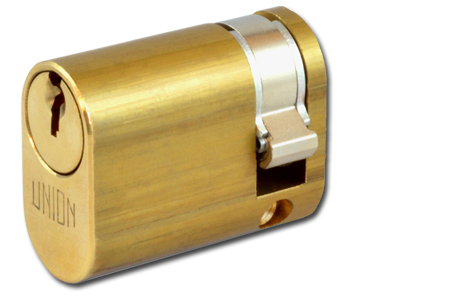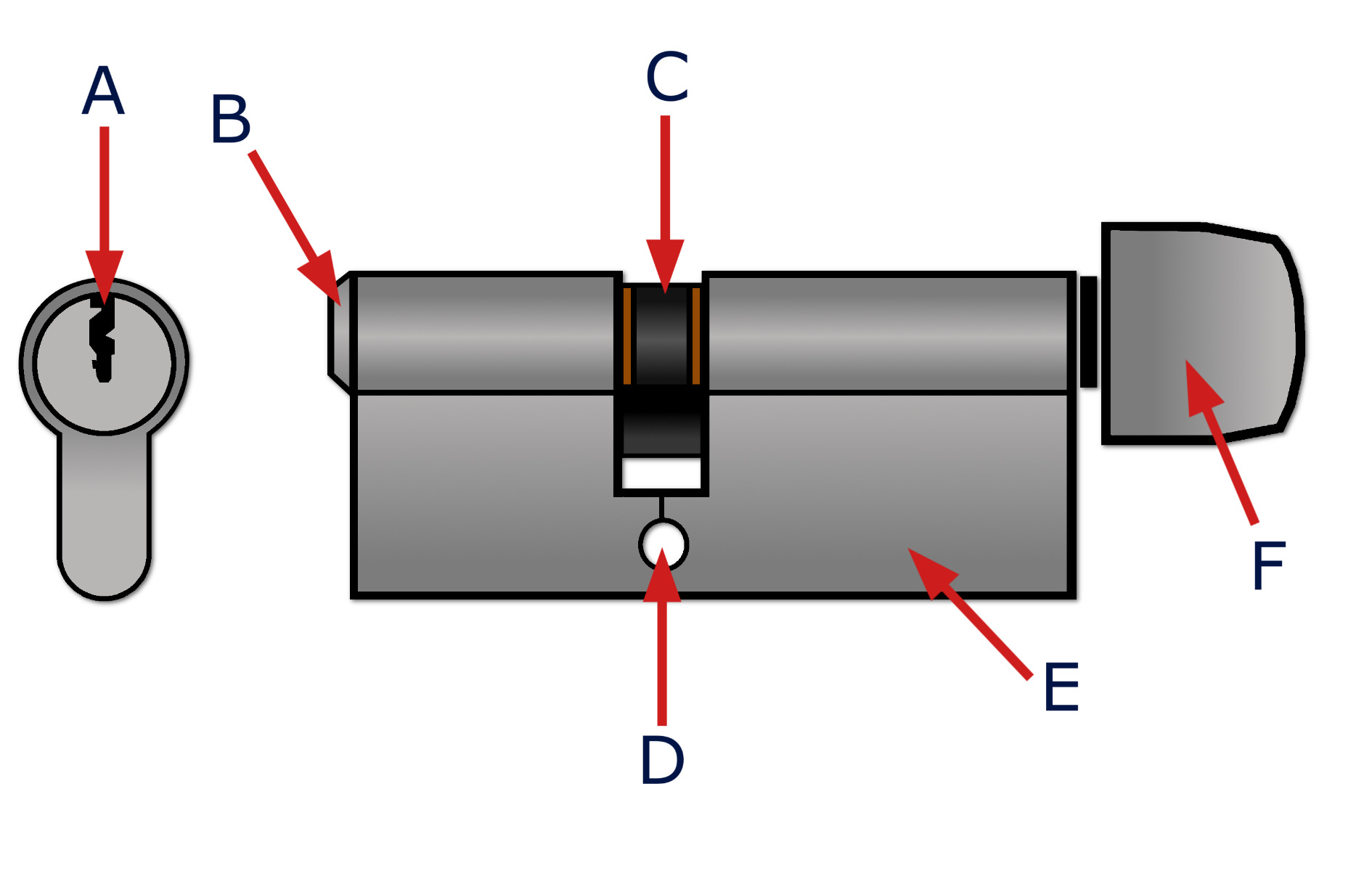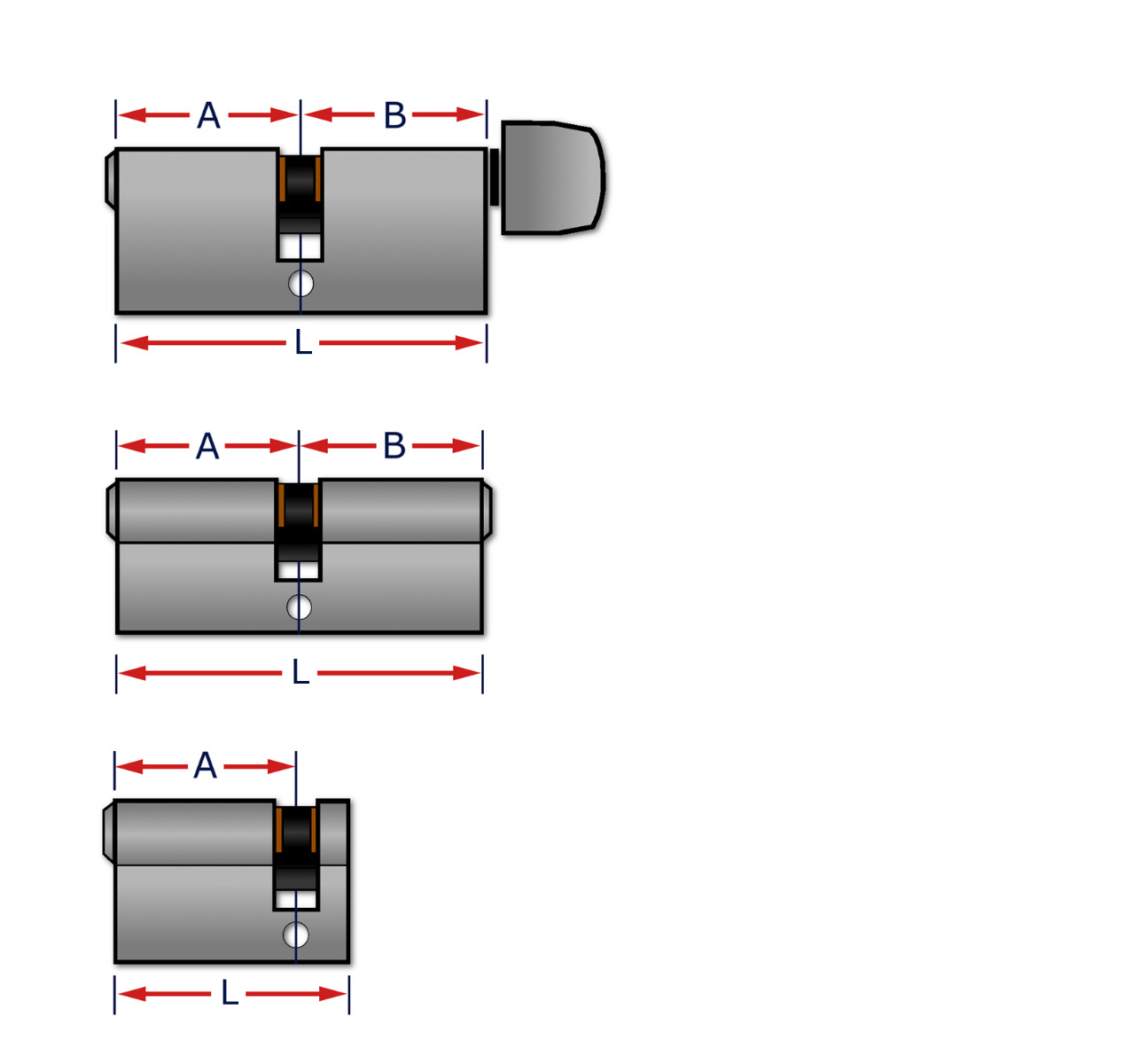How To Guide - Cylinders
Helping you make the right choice!
Cylinders can be tricky to purchase as there are many factors to consider.
Does the locking case require a Euro or Oval profile cylinder? And should the cylinder be operable by key from both sides, or would a thumbturn on the interior side be preferable?
Never fear! Our handy dandy Cylinder Guides will get you up to speed in no time.
Got yourself into a Cylinder situation that we haven't covered? Why not get in touch, we're more than happy to help you find a solution.
The Range
Click Here to view the different options of cylinder we have available for same day despatch.
Cylinder Terminology
|
 |
How to Measure Cylinders
|
 |
Cylinder Installation
Click Here to view the comprehensive 8 page cylinder installation guide.
Cylinder Maintenance
Cylinders today are designed to be very low maintenance however over time a build up of dust and dirt can start to have a detrimental effect on the internal locking mechanisms.
Often the best solution is a blast of compressed air, this can come from a compressor or alternatively a spray can, these can be found in most computer orientated stores. You should not used a standard liquid based lubricant such as WD40, the wet oil mixes with the dust and clogs the mechanism up, if lubricant is required than a specialist dry graphite based products should be used.
Cylinder Selection
Choosing the right cylinder for the application you have is of paramount importance, there are many factors to consider however below are the main points.
1) Environment
The first thing you need to do when choosing a cylinder is to consider the wider environment it will be used in, if you buy the wrong product you will soon have product failure.
Is it for use near the coast? Persistent exposure to salt water can be corrosive and a marine specification cylinder would probably be the best choice.
Is it a very dirty environment? If it is then perhaps a cylinder with a dust cover would help to extend the life of the cylinder and ensure continued functionality?
2) Security Level
When looking for a cylinder you need to consider how well it needs to stand up to types of attack.
If you have the best cylinder money can buy there will be virtually no security benefit if it is fitted on the lightest duty door or mortice lock you can find; the security is only as good as its weakest component and so the whole solution needs to be considered.
On more secure applications you will need to consider all types of attack including picking, snapping and bumping.
If insurance ratings are important you will need to select a lock that has surpassed the criteria laid out in standards such as TS007.
